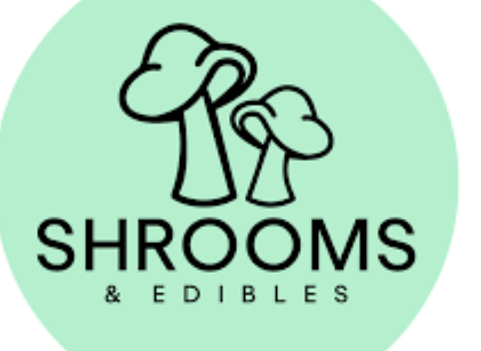Psilocybin Services Would Be Legalized In Washington State Under New Bill
A pair of Washington State lawmakers this week introduced legislation that would legalize what the bill calls “supported psilocybin experiences” by adults 21 and older. Psilocybin Services
If enacted, the Psilocybin Wellness and Opportunity Act would allow individuals to consume products containing psilocybin and psilocin, the two main active ingredients in psychedelic mushrooms, under the support of a trained and state-licensed psilocybin service administrator.
While most people would need to go into a licensed service center, those with certain medical conditions, including those unable to travel, could qualify to receive psilocybin products at home and meet with facilitators remotely.
Voters in neighboring Oregon passed an initiative in 2020 to legalize supported psilocybin treatment for mental health. That program is currently in a two-year development phase, with license applications expected to be accepted starting next January. Seattle, meanwhile, became the largest U.S. city to decriminalize psychedelics following a City Council resolution in October.
The new statewide Washington bill would establish a legal, regulated psilocybin industry available to all adults of legal age.
“Under supported adult use, psilocybin services are made available to people 21 and older for nearly any purpose,” Mason Marks, a senior fellow and project lead on the Project at Psychedelics Law and Regulation at Harvard Law School, who helped author the bill, said in a blog post about the bill. “The Act specifies that clients need not have a medical condition to participate, and psilocybin services in Washington will not constitute medical diagnoses or treatment.”
Nationally and internationally recognized medical institutions have shown that psilocybin can help treat “a variety of of behavioral health conditions,” the bill, sponsored by Sens. Jesse Salomon (D) and Liz Lovelett (D), says, “including but not limited to addiction, depression, anxiety disorders, and end-of-life psychological distress.”
Salomon told Marijuana Moment that while mental health issues are exacerbated amid the COVID pandemic, “it is exciting to know that research shows that guided, safe and certified psilocybin services have some of the best results compared to any therapy in curing addiction, anxiety, depression and addressing inner challenges people face.”
“This is a practice as old as humanity itself and it is time to incorporate this opportunity to heal into our toolbox here in Washington state,” he said. “We should not deny ourselves the benefits of these services when there is so much suffering in our communities.”
A media representative for Salomon told Marijuana Moment the bill “basically follows the thrust” of Oregon’s psilocybin initiative “but incorporates some modifications to address problems Oregon encountered with implementation.”
Under the legislation, SB 5660, the state Department of Health would issue licenses and regulate the new industry. The act would further establish the Washington Psilocybin Advisory Board within the department to advise on issues such as available scientific and social research, best practices for supported use as well as criteria for the bill’s social opportunity program.
“This bill is unique because it focuses on access, opportunity, and equity in ways no previous bill has,” Marks told Marijuana Moment, pointing to the legislation’s provision for home services and an option for would-be facilitators to complete most training from home. The bill’s social opportunity program, he said, “will provide reduced licensing fees, training, and other benefits to licensees from lower income parts of the state.
Washington’s Health Department would need to adopt rules for a “comprehensive regulatory framework” during an 18-month development period following the bill’s passage. The department must begin receiving applications to manufacture psilocybin products, operate a service center, facilitate psilocybin services or test products beginning January 2, 2024.
Services wouldn’t be permitted within the limits of an incorporated city or town unless that jurisdiction specifically allowed them, nor could they be located in areas zoned exclusively for residential use. With some exceptions, they would also need to be more than 1,000 feet from elementary or secondary schools. Until 2026, licensees would need to be residents of Washington or entities with majority ownership and control by Washington residents.
To qualify for the social opportunity program, applicants or more than half of their employees would need to be from low-income “distressed areas,” designated by enrollment in the federal free lunch program, or meet other criteria to be established by the Health Department during the program’s development period.
John Rapp, an attorney at the cannabis-focused firm Harris Bricken who also helped to draft the legislation, told Marijuana Moment in an email that he was “especially excited at the inclusion of the innovative Social Opportunity Program,” adding that such equity measures are a “big piece missing in drug decrim.” (Washington lawmakers adopted the state’s first social equity program legal marijuana only in 2020, several years into legalization.)
Employers would be barred under the new proposal from discriminating against people for receiving legal psilocybin services unless they showed visible impairment at work and couldn’t test workers unless they exhibit “clear, observable symptoms of impairment.”
Last October, Seattle’s City Council unanimously approved a resolution to decriminalize noncommercial activity around a wide range of psychedelic substances, including the cultivation and sharing of psilocybin mushrooms, ayahuasca, ibogaine and non-peyote-derived mescaline. The measure extended what was already city policy not to arrest or prosecute people for personal drug possession to further protect the cultivation and sharing of psychedelic plants and fungi for “religious, spiritual, healing, or personal growth practices.”

